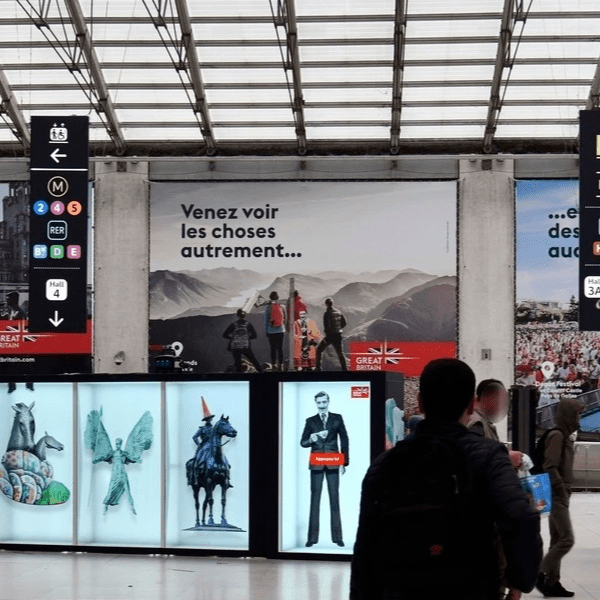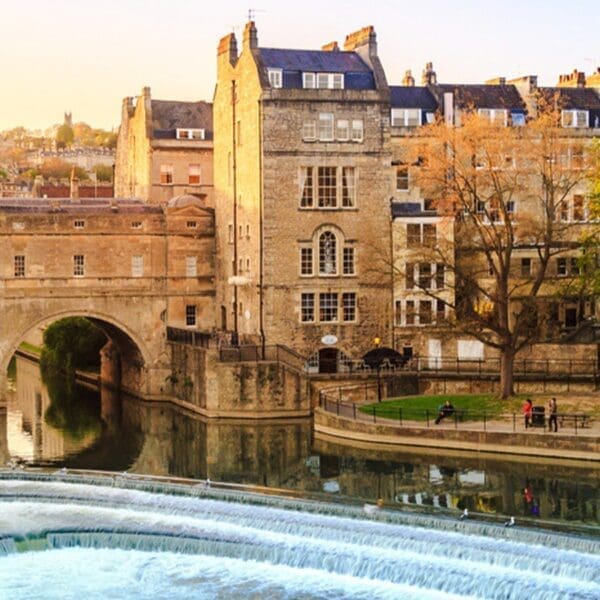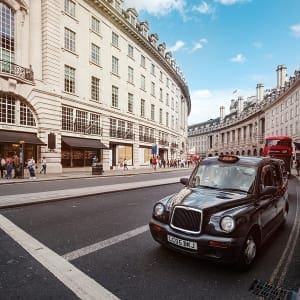
Visitors spent £951 million in Britain in the last financial year as a result of activity by national tourism agency VisitBritain/VisitEngland latest figures show.
This means that for every pound invested in the agency visitors spent £23 in Britain. As well as the UK Government investment, the agency attracted £11.5 million of investment in cash and in-kind from commercial partners and delivered £1.9 million profit from its online shop, money which is reinvested into its activities to grow the value of tourism.
The results announced today at the agency’s Annual Review follow its recently released inbound tourism forecast for 2020. Spending by overseas visitors is predicted to reach a record £26.6 billion in 2020, a 6.6% increase on the expected spending in 2019 of £25 billion.
The number of overseas visits to the UK is forecast to rise this year to 39.7 million, the highest ever, and up 2.9% on 2019.
During the last decade inbound tourism visits to the UK have grown 33% and spending by 58%.
Looking longer-term the agency also today announced its ambition to grow inbound visitor spending to £35 billion with 49 million inbound visits by 2025.
Latest available domestic statistics show that Brits have also been taking more holidays at home.
UK Minister for Tourism Helen Whately said:
“The UK tourism industry is one of our great success stories and contributes billions to the UK economy each year. I’m delighted to see it growing from strength to strength. With so much to offer, exciting cultural and sporting events, outstanding historic sites and scenery and a great welcome for visitors, there’s a host of reasons why the UK continues to be one of the world’s top tourist destinations year-after-year.”
British Tourist Authority Chairman Steve Ridgway CBE, former Chief Executive of Virgin Atlantic Airways, said tourism in the UK was an economic powerhouse, a growth industry that attracted inward investment and was a major part of British trade with enormous potential to fire-up regional economies.
Mr Ridgway said:
“These figures are testament to Britain’s success in competing for international visitors and their spending. Inbound tourism today is the UK’s third largest service export, an industry that needs no trade deals to thrive and that creates jobs and drives economic growth right across the country. We are already competing strongly and forecasting continued growth this year from our most valuable visitor source markets such as the USA and in markets that are crucial for our future including China.”
Mr Ridgway said tourism also framed how people around the world saw Britain, driving its leading ‘soft power’ rankings. VisitBritain showed a welcoming image of Britain globally, promoting the great experiences, attractions, hotels and value that visitors could only find here. The agency’s campaigns had focused on driving value, telling the story of people and places and encouraging visitors to travel further and stay longer, boosting local economies.
“If you include domestic tourism the industry is worth £127 billion, employing 3.1 million in every part of the country. For every 22 inbound visits from China for example, one job is created in Britain’s tourism industry. And this is an industry that attracts international investment too; 2018 saw £6.8 billion invested in British hotels outperforming the rest of Europe,” he said.
Mr Ridgway said that tourism was also an extremely competitive global industry and that it was important to acknowledge the challenges.
Growth from Europe had slowed and VisitBritain was working with the tourism industry to launch a new campaign in the spring to ensure Europeans book trips this year, as well as inform European visitors about the practicalities of travel after the UK’s departure from the EU.
Domestic tourism had also seen success with strong growth in short breaks. Domestic tourism accounts for almost 80% of all tourism activity and about £72 billion is spent annually by domestic tourists in England. This growth has been supported by the Discover England Fund launched in 2015 to develop world-class tourism products that had helped to bring 60 new projects and 700 products to market.
The industry had come together during the past year and put tourism at the top of the UK Government’s agenda with the Tourism Sector Deal, led by Steve Ridgway. The deal sets out plans to extend the tourism season and build business events, develop a recruitment and retention programme and build stronger tourism destinations across the country. A landmark tourism ‘data-hub’ would be supporting businesses and destinations across the UK to better understand their domestic and international customers and to tap into new markets to drive growth.
Mr Ridgway said that a policy focus for the year ahead was also sustainability with countries around the world grappling with the global growth in tourism and the UK no different. He said that whilst he believed the UK was a long way from overtourism, the agency wanted to help collaborate with the whole industry in building a resilient response to the environmental and climate change pressure that we all face.
“As we begin a new decade we look forward to working with tourism businesses and the new Government to harness the energy and ambition shown by the signing of the Tourism Sector Deal, driving more investment and economic delivery from tourism right across the country and cementing the competitiveness of one of Britain’s great industries,” he said.

















